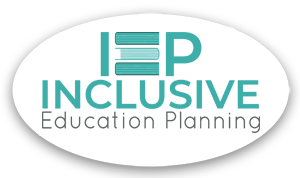Several years ago, I taught a secondary student with an intellectual disability who loved the Wiggles. He carried a Wiggles doll in the playground and borrowed Wiggles books from the library. This special interest was one of the driving forces in this student’s life and clearly made him happy. At a meeting with this student’s carers, the issue of age-appropriate interests arose. Some carers were vehemently opposed to the student publicly displaying his special interest as they felt it was problematic, while others were less concerned. I was asked by one carer to remove the Wiggles doll and to stop this student borrowing books on the Wiggles. I felt uncomfortable with this request so I decided to evaluate the issues of age-appropriateness, human rights, choice and self-determination for students with disability. I will also add that the school policy did not allow students to be involved with meetings about their own education, so unfortunately this discussion took place without the student being able to voice his opinion. I believe that students should be welcomed and supported to participate in planning meetings regarding their own education, but this was restricted by policy.
As a teacher, I provided access to age-appropriate materials and supported my students to engage with these materials. I also paired this practice with high expectations. Despite this, many students gravitated toward the Wiggles and Thomas the Tank Engine. The concerns about these interests can be categorised into four key points:
- Others may judge, tease and bully students who do not participate in age-appropriate interests and they will be viewed as not competent.
- The perceptions of others will be positively affected when students with disability engage in age-appropriate behaviours.
- Special interests that are not age-appropriate may block the development of skills connected to age-appropriate interests, therefore denying the person future opportunities.
- Treating others according to their age (e.g. no baby talk) is often viewed as a sign of respect (Forster 2010).
I began to read further about age-appropriate interests and was introduced to the work of Wolfensberger and his concept of normalization, which later merged into social role valorization. The key principle behind Wolfensberger’s theory is that for people with disability to be valued they need to enhance their image and personal competencies in order to assimilate into society. Therefore, inclusion is framed as an act of charity focused on public perception and aesthetics rather than a human right. Despite these shortcomings in Wolfenberger’s theory, it has been readily adopted by many disability advocacy organisations in Australia and greatly influences the education of students with disability. But is there a better way to address the issue of age appropriateness?
When students with disability are provided with a supportive environment where they have access to age-appropriate interests, are supported to use these, yet choose interests that are not age-appropriate, it is their human right. They are demonstrating choice and autonomy and this should be respected. Instead of viewing choices as inappropriate, they can be reframed as valued, legitimate hobbies that fulfil a need. Many adults without disability have hobbies such as colouring-in and dressing up, yet they do not experience the lack of control over their decision making that can occur with students with disability. Teachers can use special interests as a starting point to augment and expand student’s interests. They can offer new activities and interests without judging students if these are rejected. When choice and control are embedded within a disability-rights perspective, it is easier to view age-appropriateness in a different light.
Reference
Forster, S. (2010) Age-Appropriateness: Enabler or Barrier to a Good Life for People with Profound Intellectual and Multiple Disabilities in Journal of Intellectual and Developmental Disability Vol. 35 No. 2




